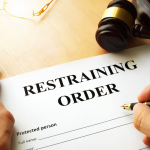Woman Commences Private Prosecution After Police Refuse to Charge her Alleged Attacker

A Queensland woman has decided to launch a private criminal prosecution against her former partner after police refused to charge him over an incident where he allegedly brought a can of petrol into their home, doused her with petrol and held a lighter at her feet.
‘Dani’ (not her real name) says police admitted there was a ‘prima facie case’ against her alleged attacker, but decided not to prosecute as there was a ‘low level of public interest’ in pursuing charges.
A prima facie case is where the admissible evidence available is capable of establishing the essential elements (or ingredients) of the alleged criminal offence. It is ordinarily sufficient for police to press criminal charges against a suspect.
The Sunshine Coast woman has now hired lawyers to do the work she believes police should be doing.
Private prosecutions in NSW
Section 49(1) of the Criminal Procedure Act 1986 (NSW) (‘the Act’) gives individuals the power to commence private prosecutions. It provides that:
“If a person other than a police officer or public officer is authorised under section 14 of this Act or under any other law to commence committal proceedings against a person for an offence, the person may commence the proceedings by issuing a court attendance notice, signed by a registrar, and filing the notice in accordance with this Division.”
Section 14 of the Act is headed ‘Common informer’ and states that:
“A prosecution or proceeding in respect of any offence under an Act may be instituted by any person unless the right to institute the prosecution or proceeding is expressly conferred by that Act on a specified person or class of persons.”
Commencing Proceedings
An individual can commence criminal proceedings by way of a Court Attendance Notice (‘CAN’).
A CAN is a document that sets out the alleged offence/s, along with the ‘particulars’ (brief details) of the allegations, and a date and time for the accused person to attend court and answer to the charges.
Once the form is completed, it must be signed and issued by a registrar of the court.
Registrars can be found at all local court registries in NSW.
It is important to note that registrars are not bound to sign and issue CANs. In fact, section 49(2) states that a registrar must not sign a CAN if he or she:
- is of the opinion that it does not disclose grounds for the proceedings,
- the notice is not in the required form, or
- there are other grounds for refusal.
In addition to this, regulation 8.4 of the Local Court Rules 2009 states that:
‘A registrar must not sign a court attendance notice, or an application notice, in proceedings commenced by a person other than a police officer or a public officer if of the opinion that the proceedings are frivolous, vexatious, without substance or have no reasonable prospect of success.’
If the registrar refuses to sign the CAN, the applicant can bring the matter before a magistrate to determine whether it should be signed and issued.
Matters to consider before commencing a private prosecution
It is important for a person who is considering a private prosecution to familiarise themselves with the ‘elements’, or ingredients, of the alleged offence/s, bearing in mind the registrar may not sign a CAN that appears deficient in that regard.
In certain cases, the consent of the Director-General or a particular Minister may be required before proceedings can be commenced. It is therefore vital to look at the relevant legislation to ensure that all criteria have been satisfied before commencing proceedings.
It is equally important to consider costs implications, as you may be ordered to pay the defendant’s legal costs if unsuccessful.
An alternative to a private criminal prosecution is an application for a private apprehended violence order, which does not lead to a criminal conviction if successful but can trigger criminal charges if the conditions of the order are breached.
Back to the Queensland complainant….
After a ‘factual review’ of the incident, police recommended that no domestic violence charges against her former partner.
Instead they told Dani she could be charged with assault for hitting her former partner, despite the fact he is much larger and was, at the time, acting in an aggressive manner.
It’s a complex situation, like many domestic violence situations – and it appears Dani and her former partner have given radically different versions of the event to police.
After taking her children to a hotel after the incident, Dani says she returned a week later at which time her partner stood over her aggressively and verbally assaulted her, just a few centimetres from her face.
Dani says she hit her ex-partner out of fear and ran into the kitchen. She claims her ex then brought a can of petrol into the house and threw it onto her chest, splashing her face and hair, before placing a lighter at her feet.
Police told Dani the man may be able to claim self-defence, and that his “erratic” behaviour appeared to be “post-concussive”.
Dani’s criminal law barrister lodged a complaint with the Queensland Crime and Corruption Commission to the effect that the police investigation was “heavily reliant on the evidence of the offender … and almost entirely dismissive of my client’s complaint”.
In his letter to the CCC, the barrister described the reasons for failing to prosecute as “rather specious” as there was “no medical evidence” to suggest the man was affected by being struck.
“[Police claimed] his ‘behaviour became erratic and unpredictable after his blow to the jaw’ despite having the presence of mind to obtain a jerry can of petrol from the garage and a lighter and approach my client with them after throwing petrol at her.
“[Police claimed] that his intention is to burn the house down, notwithstanding that my client is present and in the house.”
Dani says she is confident in succeeding, and has sold her home to fund the proceedings.
The case is come before the court in January.
Police and domestic violence allegations
Queensland Police commissioner, Ian Stewart, is a White Ribbon ambassador, but repeatedly refuses to speak out about high-profile cases involving victims of domestic and sexual violence.
Last year, there were 3,874 Domestic violence related charges lodged within Queensland Courts. 4,546 people were convicted of contravening Domestic Violence Orders (DVOs).
In 2016 The Queensland Government introduced a ten-year strategic plan for preventing Domestic Violence in the state with three foundational elements, including a shift in community behaviours and attitudes, an integrated response system to deliver services and support to victims and perpetrators and a stronger justice system response that will prioritise victim safety.
Dani says she still lives in the same community as her ex-partner but is in hiding. She wears a personal safety alarm for protection. She says she can’t “trust the police to keep me safe and applying for another protection order is pointless.”
Queensland Police and the Queensland Government have both been heavily criticised in recent times for the way domestic violence cases are handled. One victim whose address was disclosed by a Queensland police officer to her abusive former partner is now fighting the state government in court for compensation.








